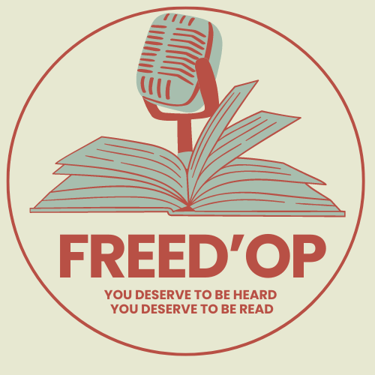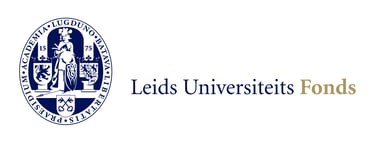Beyond the Lip Service: The Ethical Cost of Careerism Over Community in Academia
Dasia Washington
2/25/2025
To be witnessed is often the object of human existence; a habitual desire imbued in marriage, spirituality, family, art, academia. Specifically witnessed, that is, not just to be watched, but to be learned, understood as we want to seem, and the impact of our life’s development to be felt and valued in the bones of society long after we leave it. The product of this witnessing will total our Legacy. Under capitalist and neoliberal frameworks that have taught us to practice the hoarding of elitist social capital to obtain access to a dignified quality of life, Legacy is religion.
This, by a series of evermore systemically unfortunate events, brings me to the tragic relationship between the four following parties: Legacy, institutionalized higher education, its facilitative administrators, and their constituencies. Said administrators, in cementing their Careers, have likely slid into the suits of relational bureaucratic politics, lustily affixing their Legacies in inching proximity to the capital, influence, and social resources that one finds monopolized by Institutions. Here, I think of Freire and his observations of such proximity promoting the evolution of a system that fosters conformity rather than true critical consciousness and liberation, for the two conditions are mutually exclusive. Such a dynamic places the constituencies of higher education institutions at higher risk of being in vulnerable, extractable states - students as exploited mentees, trained for economic and status-driven outcomes; faculty leveraged for their optimal relational positioning to students, utilized as tools to theorize away true threats to established paradigms; staff drowned in solicitative missions, spinning the fundraising PR of the institution into something the wider community may be able to stomach their dollars being siphoned for - don’t ask too many questions, the kids gotta eat (whoever said closed mouths don’t get fed?).
This manifestation of careerism reduces these constituencies to their economic roles, achieving credentials & status, all the while keeping us calculably distanced from challenging the Institutions and their Administrators in a consequential way. Intimidating us away from challenging those who are a part of the crucial structures of power that shape our moral apathy just subtly enough to allow the space for them to continue the instrumentalization of education as a catapult for their career. Personal and collective liberation slip through our fingers in the melee.
I am both an alum and former staff member of Guilford College (Greensboro, NC). When Palestinian students and their allies sought support after the October 7th escalation of violence in Gaza, and after their attempts with the administration failed, we stepped up. We organized community events during a strike week, providing educational resources, food, brave spaces, and solidarity.
In response, President Kyle Farmbry initiated a campaign to remove me from my position and retaliate against my colleagues. Despite my attempts to engage in dialogue with him and other members of the administration, I faced dismissal and gaslighting. They sought to downplay their complicity in the ignorance and privilege that have allowed such violence to continue. Some administrators claimed ignorance, while others remained silent, all fearing for their own careers.
In a meeting with President Farmbry, his dismissal of concerns about his handling of the situation and the community's well-being was palpable. The administration prioritized financial strategies over justice, displaying a disturbing cowardice in the face of injustice. Fear among my colleagues has silenced many stories, but the threats we faced—including potential of withheld pay, termination of my employment, legal intimidation, and attempts to ban me from campus—reflect a broader trend of betrayal in higher education across the U.S. this past year. We are not safe to advocate for our lives. Why?
The ideal conditions under which to craft a Legacy will align your values with your actions, closing the gap of contractions between your understanding of the world and how you act. We consider how future generations will view our contributions and decisions, how the relationships and stories that we cultivate now will impact our communities, and what memories people will be inspired to share when we are gone. However, the Legacy that we’ve all witnessed today’s facilitators of “higher ed” cling to fails to cultivate the latter. Instead, their Legacy abandons fostering true critical engagement with knowledge, failing to meaningfully address failures or regrets that could serve as crucial parts of the Legacy. Instead, the Institution and its puppets opt for securing their spot in the Empire by reminding their constituents of their place. Replacing societal transformation with their starving Legacy, the limits they’ve imposed on us -informed by their impoverished imagination’s idea of “realism”- provide shelter, a life-line to keep the Empire’s new generation of professionals from having to confront their own surrendering of community. I watch in horror as they justify their willingness to exchange revolution & community for Institutional Ethics, maintaining a show justified by frenzied PR stunt lullabies, watering down the uncomfortable sacrifice of revolution to “naïveté” and “youth”, colleagues gladly propping up the facade lest each be held accountable to their own failure to confront justice.
So, by what means and resources do the constituencies of higher education have access to in order to impose consequences on an institution? We do not have comparable proximity to financial wealth, network, legal aid, and appointed ethos. This means we do not have the same abilities to operate outside of the bounds of accountability. But in the same way that laborers are crucial to the profits of a corporation, constituents and the narratives they hold are crucial to the success of a Legacy.
This is our power.
Constituencies all over the United States have sacrificed our education, civil liberties, jobs, social status, and safety to fight for a free Palestine. These sacrifices are not in vain, they are the beginning of a process of securing each and every one our’s liberation, each intertwined with another’s. We will not reward higher education’s institutional betrayal -and allegiance to the carceral systems it pretends not to profit from- with grace.
I should use this opportunity to caution the administrative facilitators of higher education, leeched onto their Careers and Legacies: what the children of your institutions have seen -in blood and limbs, and in your carceral betrayal- will burn in our memories. As you abuse the minds of our youth and siphon from our communities, the Ladders you hasten to climb will slick with the blood dripping from your hands. Your donors will fruitlessly strain to hear your twisted narratives of hypocritical righteousness over the rallying cries of the children and communities you’ve had the arrogance to ignore. Like red wine on a wedding gown, your Legacies are forever tainted by your abandoned responsibility.
We want you, but do not need you, as we reclaim our liberation. Will you say the same, as you discard us in favor of carrying your debts to your grave, your esteemed colleagues strolling over your body to start the meeting on time
Dasia Washington


